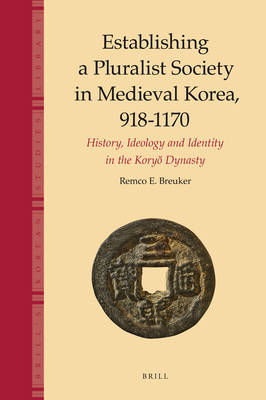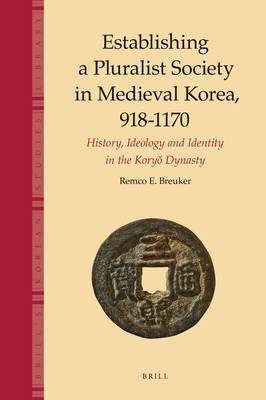
- Afhalen na 1 uur in een winkel met voorraad
- Gratis thuislevering in België vanaf € 30
- Ruim aanbod met 7 miljoen producten
- Afhalen na 1 uur in een winkel met voorraad
- Gratis thuislevering in België vanaf € 30
- Ruim aanbod met 7 miljoen producten
Zoeken
Establishing a Pluralist Society in Medieval Korea, 918-1170
History, Ideology, and Identity in the Koryŏ Dynasty
Remco Breuker
€ 373,95
+ 747 punten
Omschrijving
This book offers no less than a radically different view of the Koryŏ state. Until now scholarship failed to recognize the complicated historical descent, byzantine international relations and multiple incommensurable worldviews of the early Korean Koryŏ state (918-1170). Instead, it subjected these to reductionist categories favouring reified particulars over broader views. Asking how Koryŏ meaningfully dealt with its environment, Remco Breuker rejects the reduction of Koryŏ intellectual abundance to analytical categories, and emphasizes the functional importance of Koryŏ's pluralism in allowing the notion that realities were scattered, inconsistent and plural.
Here is a convincing argument that Koryŏ's pluralism decisively contributed to the formation of a region-transcending communal identity that enabled Koryŏ to engage in a civilizational competition with neighbouring Chinese and Manchurian states, while maintaining a dynamic but stable society domestically.
Here is a convincing argument that Koryŏ's pluralism decisively contributed to the formation of a region-transcending communal identity that enabled Koryŏ to engage in a civilizational competition with neighbouring Chinese and Manchurian states, while maintaining a dynamic but stable society domestically.
Specificaties
Betrokkenen
- Auteur(s):
- Uitgeverij:
Inhoud
- Aantal bladzijden:
- 500
- Taal:
- Engels
- Reeks:
- Reeksnummer:
- nr. 1
Eigenschappen
- Productcode (EAN):
- 9789004183254
- Verschijningsdatum:
- 25/03/2010
- Uitvoering:
- Hardcover
- Formaat:
- Genaaid
- Afmetingen:
- 163 mm x 241 mm
- Gewicht:
- 839 g

Alleen bij Standaard Boekhandel
+ 747 punten op je klantenkaart van Standaard Boekhandel
Beoordelingen
We publiceren alleen reviews die voldoen aan de voorwaarden voor reviews. Bekijk onze voorwaarden voor reviews.








